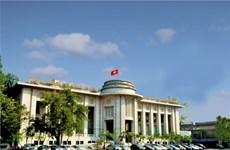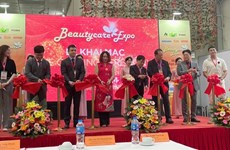Forum on aid effectiveness held in RoK
The Fourth High Level Forum on Aid Effectiveness (HLF-4) concluded in Busan, the Republic of Korea after three days.
The Fourth High Level Forum on Aid Effectiveness (HLF-4) concluded in Busan, the Republic of Korea after three days.
This year’s event was the largest ever, with the participation of 10 State leaders, 100 ministerial delegates and about 3,000 delegates from 160 nations and organisations.
Preventing the impacts of short-term economic crises from affecting long-term commitment to help the poor in the world was the forum’s message to donors and in a positive move, donors agreed to ensure the implementation of aid.
Some countries, including Australia and the Republic of Korea , pledged to increase their official development assistance (ODA).
Aid recipients were evaluated in the cooperative process as partners for cooperative development, not as passive aid users.
Policymakers from about 160 countries agreed to set up a new world partnership to help aid activities become more effective despite world difficulties.
The forum’s declaration highlighted the orientation of cooperative results, comprehensive partnership development, enhancement of transparency and examination, improvement of South-South and triangle cooperation, along with the participation of the private sector.
The declaration also recognised the transition from aid effectiveness to development effectiveness.
The Vietnamese delegation to the forum was led by Deputy Minister of Planning and Investment Dang Huy Dong.
The Vietnamese delegation participated in the session on cooperative development with ASEAN countries. Vietnam ’s economic achievements in recent years contributed to raise the country’s position in the region and the world.
Over the past 20 years, as an aid recipient, Vietnam ’s rate of poor households reduced from 50 percent to 10 percent. Especially, the country fulfilled two thirds of the UN millennium development goals’ development indexes and is expected to reach all by 2015.
On the country’s experience in economic development, Dong said that Vietnam has made its own way despite difficulties in three key areas: institutional reform, human resource development and infrastructure, which will continue to be priority areas in future./.
This year’s event was the largest ever, with the participation of 10 State leaders, 100 ministerial delegates and about 3,000 delegates from 160 nations and organisations.
Preventing the impacts of short-term economic crises from affecting long-term commitment to help the poor in the world was the forum’s message to donors and in a positive move, donors agreed to ensure the implementation of aid.
Some countries, including Australia and the Republic of Korea , pledged to increase their official development assistance (ODA).
Aid recipients were evaluated in the cooperative process as partners for cooperative development, not as passive aid users.
Policymakers from about 160 countries agreed to set up a new world partnership to help aid activities become more effective despite world difficulties.
The forum’s declaration highlighted the orientation of cooperative results, comprehensive partnership development, enhancement of transparency and examination, improvement of South-South and triangle cooperation, along with the participation of the private sector.
The declaration also recognised the transition from aid effectiveness to development effectiveness.
The Vietnamese delegation to the forum was led by Deputy Minister of Planning and Investment Dang Huy Dong.
The Vietnamese delegation participated in the session on cooperative development with ASEAN countries. Vietnam ’s economic achievements in recent years contributed to raise the country’s position in the region and the world.
Over the past 20 years, as an aid recipient, Vietnam ’s rate of poor households reduced from 50 percent to 10 percent. Especially, the country fulfilled two thirds of the UN millennium development goals’ development indexes and is expected to reach all by 2015.
On the country’s experience in economic development, Dong said that Vietnam has made its own way despite difficulties in three key areas: institutional reform, human resource development and infrastructure, which will continue to be priority areas in future./.













